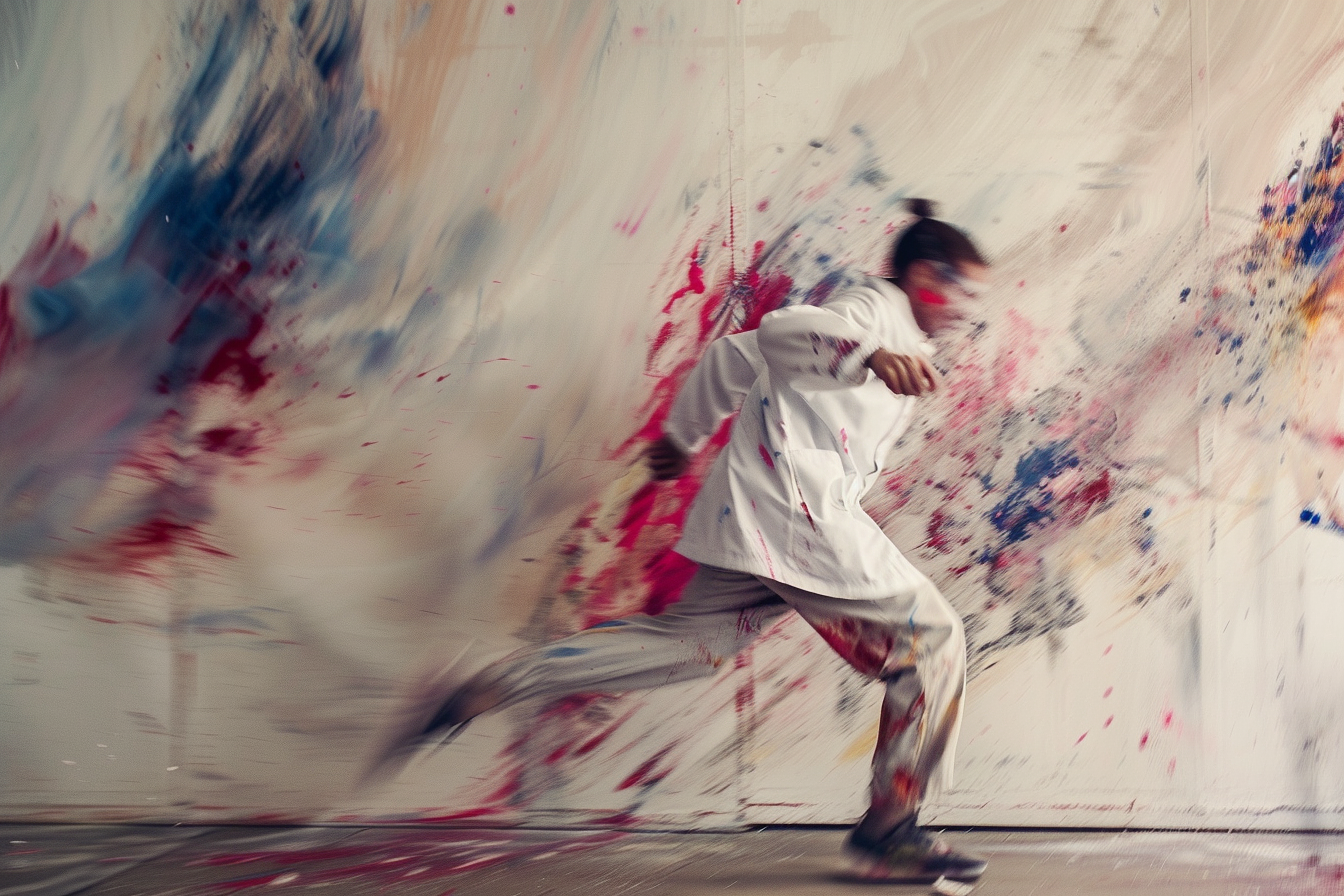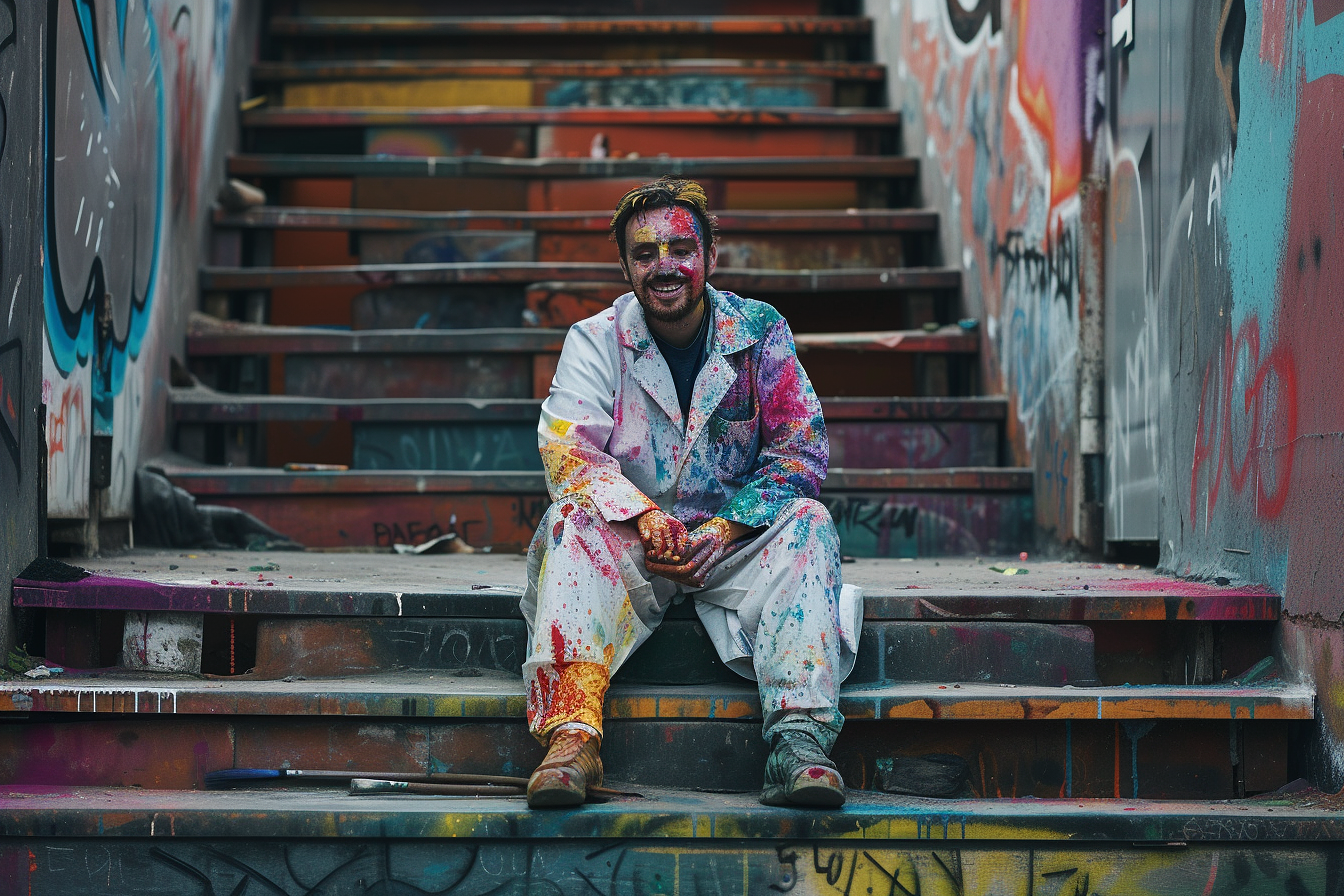
Business In Archviz
The importance of time in archviz
Let's go for another peripheral topic, at least in respect to the usual discussions around archviz. I do hope though that by the end of this article this topic will appear more central to you.
In any service, there is a usual triptyque people have to deal with : money, time and quality.
Time being a finite measure in our life, it makes sense we want to optimize it.
And the key word here is optimizing. Optimizing when it comes to time only is achieved when you are finding ways to decrease time spent on a task, while at the same time retaining the same quality for the final output.
If you decrease the time on a task, and that task is done more poorly, you didn't optimize, you just worked less.
Now, what is interesting is to find what are the different steps in the crafting of an image that can be optimized, and the ones, that simply can't.
Here I'll just list the main steps that are directly linked to actually building an image. There are of course adjacent steps required, but we'll keep them out of the loop for simplicity sake.
Time that can be decreased without impacting the final output negatively
- Automating populating floorplans with assets thanks to Railclone and Forest pack and bespoke libraries
- Optimizing populating scenes thanks to Anima or similar programs
- Automating the creation of biomes thanks to Forest Pack and bespoke libraries
- Decreasing rendering time thanks to better hardware and software
- Material creation using ready-to-use materials as a starting point
- Optimizing lighting scenarios tests thanks to Scene Manager and some additional scripts
Time that can't be decreased without impacting the final output negatively
- Ideating.
- Ideating, or finding the right concept for your image, is one of the core aspect of making images. Making something realistic is nice, but if what is realistic in the first place is the wrong approach to a project, then you're just missing out on a better opportunity to create better images
- Curating.
- Curating is another fundamental step in the process of finding the right image in the myriad of tests you'll do. If you don't take the time to curate and cull your final images properly, you might be spending the rest of your time working on the wrong set of images.
All in all, we notice a simple pattern. The more creative the task, the more it requires time. Why is that? Because time adds value to creative work that cannot be replicated any other way. And the creative aspect of an image (its art direction) is what does most of the heavylifting in differentiating a good from a bad image.
Interestingly enough, finding the right solution to a problem (because making an image for a brief is, at heart, just problem solving) is not solely dependent on producing many options to choose from, but also on spending the right amount of time to find the actual right way of tackling the project.
I think we're all familiar with this feeling that when you revisit your work and see the final images you've sent to the client, you see that maybe another framing idea, or another lighting scenario, or a completely different art direction altogether would have yielded better results. This can come from experience, but this can also come from rushing too quickly to the first idea you had back then.
Sometimes creative breakthrough hits you during your time off. And if you're constantly working on a subject, the opportunity for new thoughts to enter your brain is limited, if not entirely prevented.
Why do you want to go so fast anyway?
And here after seeing this quest for speed being turned to 11 with the recent advancement of AI, I started asking myself a pretty simple question : why do you want to make images so fast? (title of your sextape)
What is the point of churning out thousands of composition ideas in under 10 minutes in Midjourney if they are all crap?
What is the point of using ChatGPT to generate daily content for your Linked-In profile if you're just regurgitating surface knowledge with absolutely no personal perspective added on it and sound like a bot?
I get that we're working within a business environment with tight deadlines and an incentive to generate profit at the end of the line. The thing is, trying to cut time on every single step of the process is impacting the overall quality of the final deliverables.
And also, cutting down time in an undifferentiated manner is a bit weird to me.
Yes cutting down time on boring model cleaning, rendering downtime, creating materials or populating a scene sure make sense. Menial tasks, while required, don't leverage more positive outcome whether you spend 1 hour on it or 10. And also, who enjoys spending hours looking at a rendering progress bar? or recreating the same material for the 100th time?
But cutting down time on the core of the practice, namely the creative part, is beyond me. Who doesn't enjoy walking around a scene in order to find the best point of view? Who doesn't enjoy testing out all the possible lighting scenarios in order to be sure that you nailed the one that makes the most sense for your intent? Who doesn't enjoy sitting down and thinking of the best approach to a project and ponder a client's brief until you have a proper compelling art direction for it?
Cutting down on both these is basically considering the value of archviz is evenly distributed between these different aspects of making an image. The reality is the menial part is worth almost nothing as it's considered a given, and the creative part is the one part that can make an image cost x or 10x.
Funnily enough, saving time on everything is the best way to reduce the perceived value of your images while you litterally are given the opportunity to maximize what makes your work different and valuable, and thus potentially increase your fees for a legitimate reason.
The consequence is therefore a lowering of the output quality, a lowering of fees, and a lowering of the potential enjoyment of crafting images. Good job.
There are some automatism that we tend to take mindlessly and acquire by pure mimetism, usually from our direct environment. There are also some selling points marketers tell us that we take at face value as if the negatives didn't clearly outweigh the positives. We all want to be millionnaires without even knowing what we would do with the money in the first place, we all want fancy clients without even questioning if we like their architecture in the first place, we all want the latest Nvidia RTX card even though it wouldn't really impact the quality of the images per se, we all want to be able to make cool images faster without understanding that what makes an image cool, is to spend time on its core concepts.
It is true that in the past, things took time not because artists necessarily wanted to, but simply because the tools required it. If you need to paint a scene, you will need to go through all the brushstrokes one by one. If you wanted to carve out a sculpture from a block of marble, you would chisel it one hit at a time. And a few decades ago, if you wanted to create a scene of any subject, you would have needed to model everything yourself, create your own textures, before you could actually see anything rendered.
Nowadays we have everything at our fingertips, sometimes in fractions of a second. You can get ready-to-use assets to throw in your scene without really wondering if that couch is the best suiting option.
You can generate hundreds of lighting option from MJ without really understanding what is good lighting in the first place for the project you're dealing with.
You can render 100 images thanks to fast GPU-rendering but you don't even know that 99% of those images are crap and quantity will not compensate for quality.
You can generate hundreds of lighting option from MJ without really understanding what is good lighting in the first place for the project you're dealing with.
You can render 100 images thanks to fast GPU-rendering but you don't even know that 99% of those images are crap and quantity will not compensate for quality.
And this is when you have such power that it becomes all the more critical to sit down and ponder on the true value of time in the creative process, and not mindlessly try to cut it down as much as possible.
Hope that helps.
Cheers
Simon
Hope that helps.
Cheers
Simon
If you want to learn the ins and outs of composition, and how to optimize your time in the right areas efficiently to maximize your creativity, check out my online course From The Ground Up.
You must be logged in to post a comment. Login here.
About this article
When it comes to creative tasks, time is not evenly distributed in its value and importance. In this article I tackle the impact of not managing your time properly by focusing too much on so-called time optimization.
visibility72
favorite_border0
mode_comment0








